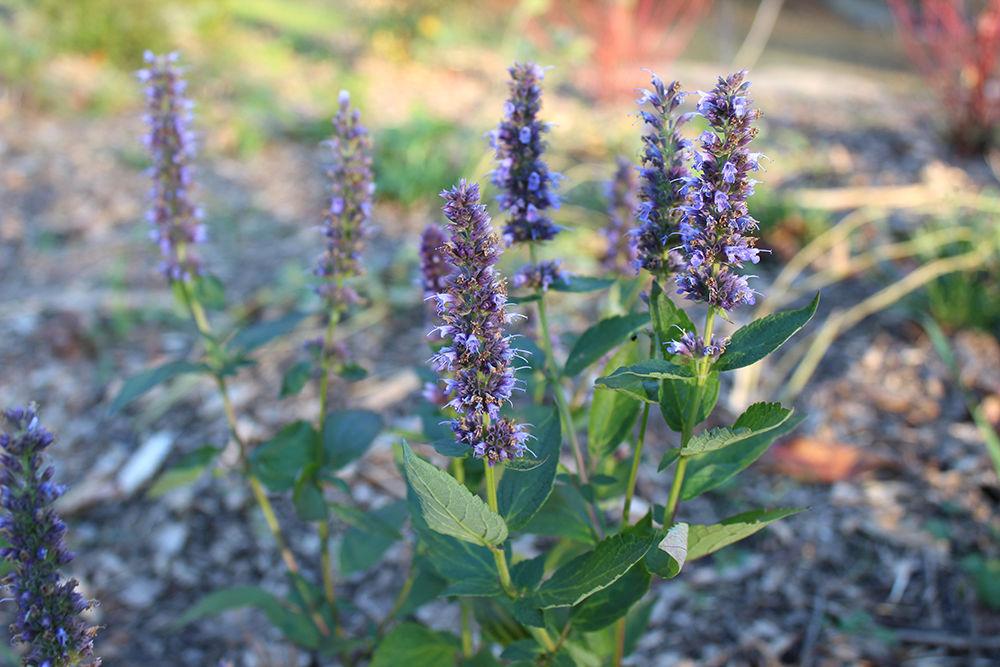Colony collapse, lack of habitat and more have plagued the bee population in this nation. In a time of mass extinction and unchecked climate change, researchers far and wide are desperately trying to find methods that will at least lessen the rate of die-offs. The issue is so alarming, in fact, that the White House created an official initiative in order to curb pollinator loss.
“Given the breadth, severity and persistence of pollinator losses, it is critical to expand Federal efforts and take new steps to reverse pollinator losses and help restore populations to healthy levels,” the White House stated in a recent memorandum. “These steps should include the development of new public-private partnerships and increased citizen engagement.”
This new wave of coverage has opened up the field for local efforts as well. NC State’s own Melissa Tinling is a graduate student studying horticulture business administration with a focus in design, which will be her second master’s degree. She hopes to bring pollinator science to the public eye in order to promote awareness through on-campus renovations and educational workshops. Tinling hopes to improve NC State’s campus’ pollinator diversity.
“It’s a great opportunity to ride that wave to promote pollinator education,” Tinling said.
For her first project at NC State, Tinling designed and planned a pollinator garden on the Centennial disc golf course. With help from the school’s grounds management department, Tinling was able to complete the garden in less than two months. Funding was made possible by the NC State Sustainability Fund, which awarded her $7,000 to complete the project.
The garden serves multiple purposes: it supports native NC pollinators ranging from bees to butterflies to moths, provides a means of preventing erosion in several different ways, is an aesthetically pleasing addition to the campus and promotes biodiversity education.
“Extending plants to the people and bringing plants to the public is the main inspiration behind the garden,” Tinling said. “I want to encourage biodiversity at the university and local level.”
According to Tinling, the grounds management department was so supportive of the project that they decided to use the habitat as a storm water management, which allowed them to contribute some of their own funding. The area was already facing severe wash out, so the combination of the two aspects halted erosion.
“[The pollinator garden] would not have happened without the grounds crew,” Tinling said. “It turned into something really mutually beneficial to both of us.”
The process of designing the plant layout was time consuming compared to the actual planting period. After Tinling received the funds at the beginning of the fall semester, she dedicated the entirety of September to planning and two days in October to gardening. Twenty members from various organizations including the entomology, horticulture and beekeeping clubs volunteered their time to complete the planting.
Tinling’s garden is populated by three key types of flora: shrubs, ornamental grasses, which serve as a habitat and structural components, and herbaceous perennials for pollination services. The last is a type of plant whose growth dies down annually but whose roots survive. After winter’s end, the flowers bloom and the garden becomes fully functional again.
Feedback for the garden has been overwhelmingly positive. Its creation was covered and promoted by the NC State Office of Sustainability. Although Tinling isn’t the first pollinator garden planter on campus, her project is a welcome defense against local pollinator endangerment.
Regarding the origin of the gardens, Tinling gives credit to Dennis Werner, a professor in the horticulture department. Werner, along with a group of horticulture students and the grounds management department, started the campus pollinator garden trend by planting more than 600 pollinator-friendly plants along Partners Way according to the NC State Office of Sustainability.
“I thought that it would be a good idea for [NC State] to play a role in providing habitat for pollinators,” Werner said.
Tinling said she believes pollinator landscaping is on the rise on campus.
“Not just our campus, but many schools and businesses across the country are starting to rethink how they plant their landscapes,” Tinling said.
Tinling hopes that people will enjoy and be delighted by seeing more interesting landscapes that they’re not used to seeing on their daily campus walks. In the near future, she hopes to expand the project to more audiences by means of a website and an on-campus “Pollinator Week” in April.
Tinling said she is glad that pollinators are finally getting the attention they deserve. Unfortunately, much of insect extinction is not reported as widely as other larger, more famous animals. The recent news of bee and pollinator decline has caused a nationwide concern, and Tinling is proud to be doing her part to combat extinction on NC State’s campus.













